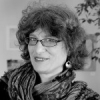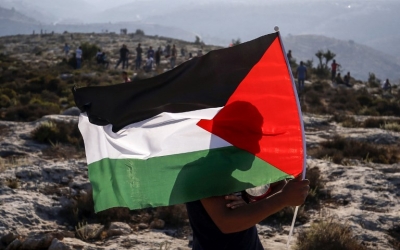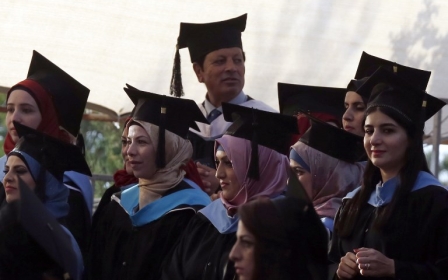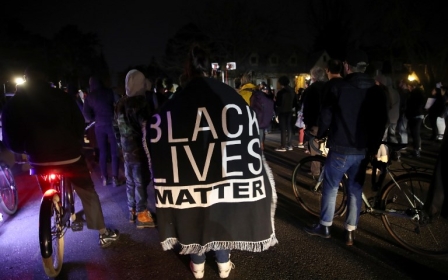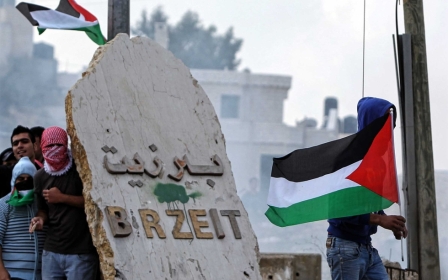Despite summer break, academic battles for Palestinian justice rage on
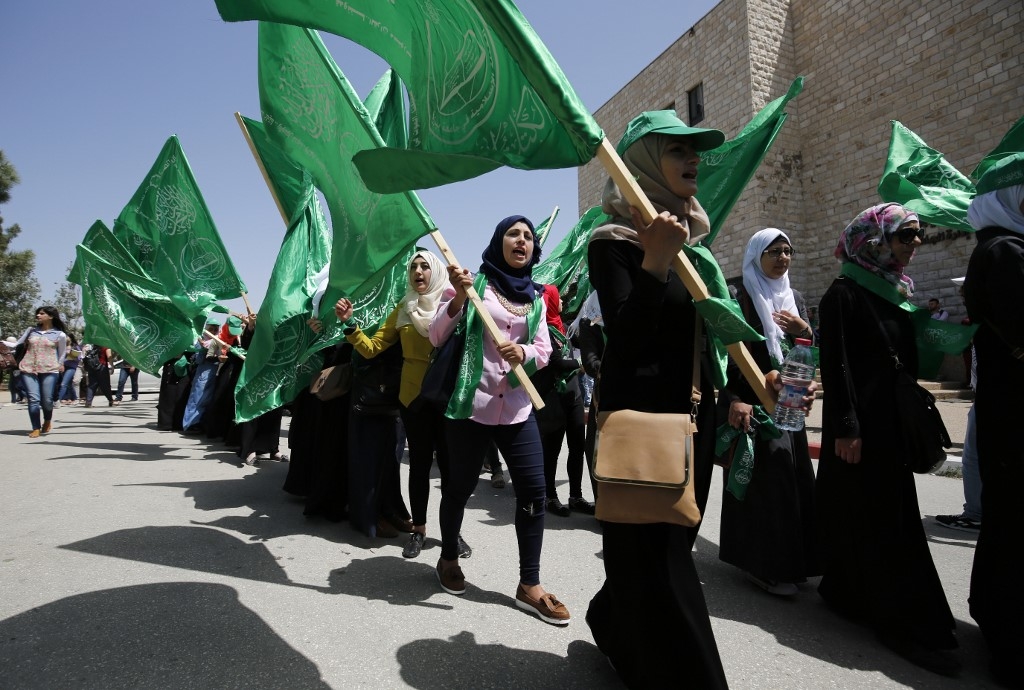
It may be summer vacation in the US, but the academic battles between Zionist and pro-Palestinian justice camps are raging on.
Such battles usually take place while classes are in session, when students organise pro-justice events around Israeli Apartheid Week; last November, a controversy emerged over the UCLA National Students for Justice in Palestine conference, and battles also ensue when justice-minded faculty invite Palestinian speakers. The examples, sadly, are many.
Two years ago, two teachers were effectively fired after inviting a Palestinian professor of peace and conflict studies to speak at their school, after Jewish parents complained. Although the speaker was ultimately re-invited, the two faculty members' contracts were not renewed. And matters have not improved across the country, as many continue to be maligned simply for speaking up for justice and equality.
The 'Palestine exception'
On such occasions, university administrators often fail to support their own, caving to Zionist pressure and thus proving the "Palestine exception to free speech". They withhold funding, require additional security - as if the mere presence in a lecture hall of a Palestinian intellectual is a public threat to the campus community - and routinely demand that the Palestinian perspective be "balanced" by a Zionist one.
New MEE newsletter: Jerusalem Dispatch
Sign up to get the latest insights and analysis on Israel-Palestine, alongside Turkey Unpacked and other MEE newsletters
There are no other cases where the proponents of one perspective, speaking about their experiences of oppression, are consistently required to be on panels with members of the oppressive group.
African Americans speaking of racist police practices do not have to share the forum with white supremacists
African Americans speaking of racist police practices do not have to share the forum with white supremacists; queer advocates do not have to speak alongside homophobes; disability justice organisers are not pressured to give equal value to the perspective of eugenicists. Yet, Palestinians are pressured to "include the other perspective," allowing equal time for Zionists, as if it were not the very ideology behind their oppression and the violation of their human rights.
The usual "summer lull" in these academic battles was recently disrupted by several initiatives. The Modern Language Association (MLA), the world's largest academic organisation focused on languages and literature, recently rekindled the fires smouldering within its ranks when it issued an alert on 10 July, demanding the release of a Tibetan writer imprisoned by Chinese authorities.
While the alert is laudable, it comes as a slap in the face to all those members who, over the years, had demanded similar actions with regards to Palestinian writers - only to be told, repeatedly, that the MLA does not advocate on political matters. In 2017, MLA members attempted to pass a resolution in favour of the boycott, divestment and sanctions (BDS) movement, but it failed; since then, the MLA has formed a new "advocacy initiative".
Undemocratic veto
Also this summer, on 11 July, Birzeit University in the West Bank partnered with Al-Haq and Adalah, two Palestinian human rights organisations, to demand an immediate halt to Israel's denial of work permits to international faculty interested in teaching there.
And historian Robin Kelley, a professor at UCLA, recently published a piece criticising Pitzer College president Melvin Oliver's trip to Israel, after his undemocratic veto of the college council's motion to suspend a study abroad programme with the University of Haifa.
Nor are these "summer battles" limited to the US. In England, in another openly undemocratic move, the management of the British Society for Middle Eastern Studies (BRISMES) unilaterally reversed the vote of its membership to support BDS. In a recent statement, the society explained that it had not actually endorsed the academic boycott of Israeli institutions advocated by BDS, noting: "There was an indicative vote of the membership held at the Annual General Meeting. The majority of those attending voted in favour of the boycott. This vote is not binding on the Society."
Nicola Pratt, a BRISMES council member, responded on Facebook that the council had not been consulted on the phrasing of the society's statement, adding: "BRISMES must take into consideration the views of its members, as expressed in the AGM vote, and consider how to respect and implement these views whilst also respecting the laws governing the Society."
'Politically motivated chicanery'
Another council member, Andrea Teti, wrote: "I have never seen such extensive willingness to bend and break rules merely in order to prevent members' voices from even being heard ... This kind of underhandedness cannot be the basis on which a charity and a professional association is run - not one I'd wish to be a member of or represented by, certainly."
In addition, prominent academic Laleh Khalili recently declined an invitation to give the BRISMES annual lecture, citing the society's "attempt to circumvent organisational democracy" with regards to the BDS issue. In an email to the society, she noted: "I am ashamed - as a member of Middle East Studies community in Britain - to see that the officers of BRISMES are imperilling the institution. Should their unethical and politically motivated chicanery continue, I will join in with all other current and potential members to boycott the organisation."

Such underhandedness is the norm at large and small universities, public and private, as well as various scholarly associations, from Europe to North America.
Nevertheless, as the popular discourse gradually shifts towards an embrace of justice for all, universities will need to listen to their faculty, students and staff. Academic associations will need to respect the decisions of their membership, or the very concepts of "free speech" and "academic freedom" - already tenuous - will simply have to be abandoned.
Demanding accountability
Fortunately, this is not likely to happen. Khalili used her large social media platform to add: "Friends, if you are members of BRISMES, don't resign yet. You need to stay in to support the activists who are trying to change the organisation. If people leave, this will be seen as a victory for the old guard and for their anti-BDS position."
These battles are absolutely worth the year-round organising and effort
Indeed, the tenacity of organisers for justice for Palestinians is best illustrated by the recent victory at Fordham University, where students, represented by the Center for Constitutional Rights and Palestine Legal, challenged their administration's denial of their right to form a chapter of Students for Justice in Palestine. A New York judge last week ordered the university to recognise the chapter.
Palestine Legal is also challenging a lawsuit by an anonymous group of students at the University of Massachusetts, who are suing their university for hosting the pro-Palestine "Not Backing Down" forum. A judge recently ruled that the lawsuit could not move forward anonymously, and Palestine Legal told MEE that the students were granted until 20 September to identify themselves, or drop the suit.
The persistence of students, the commitment of speakers, and the timely assistance provided by Palestine Legal, shows that intellectuals and human rights advocates are not ready to surrender their rights to critical inquiry, to speaking truth to power, and to demanding accountability from Israel. These battles are absolutely worth the year-round organising and effort.
The views expressed in this article belong to the author and do not necessarily reflect the editorial policy of Middle East Eye.
Middle East Eye delivers independent and unrivalled coverage and analysis of the Middle East, North Africa and beyond. To learn more about republishing this content and the associated fees, please fill out this form. More about MEE can be found here.


